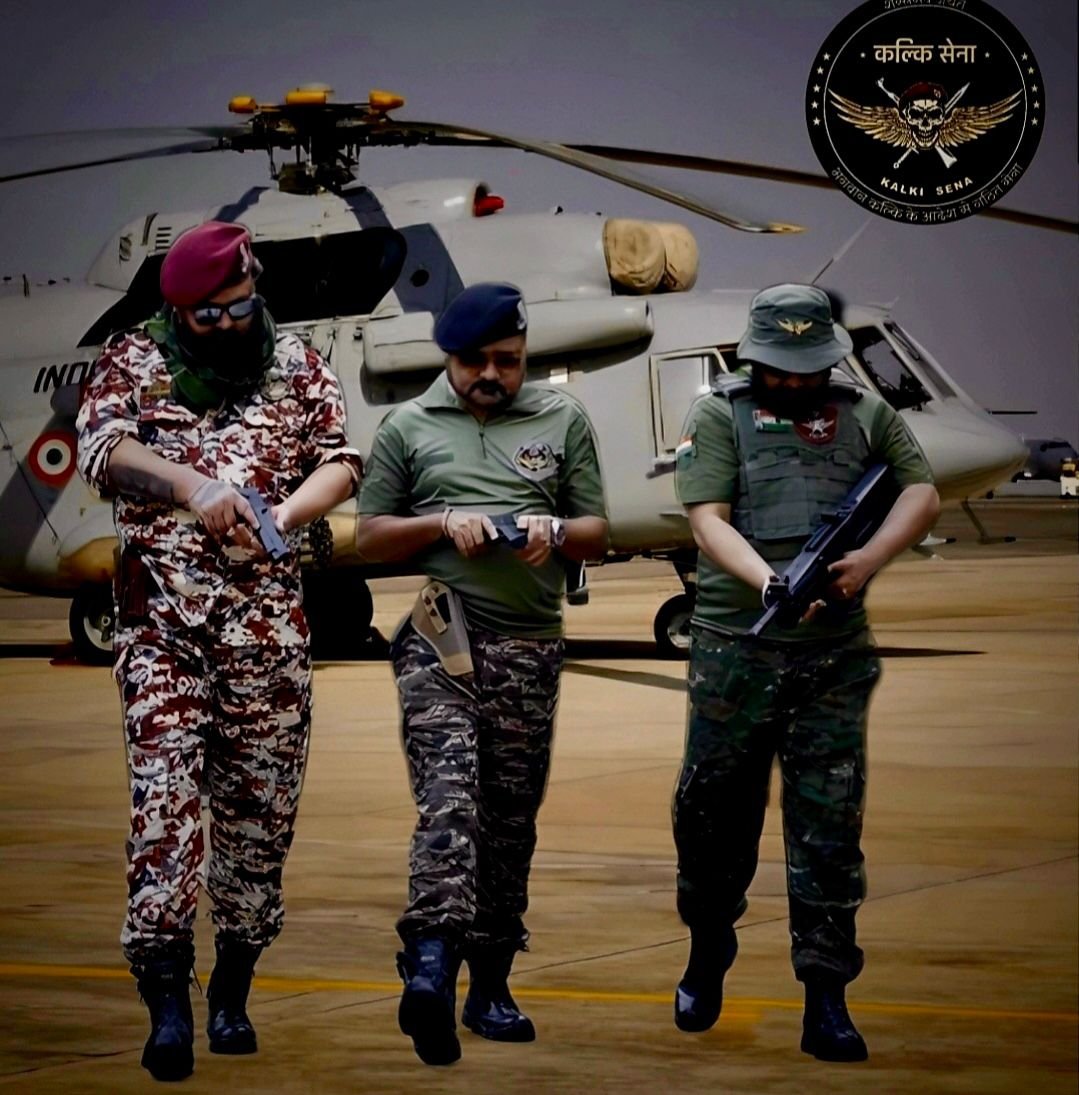In an age when national security increasingly extends beyond battlefields, Kalki Sena’s “Counter Terrorist Combat Course 2025” has emerged as a compelling model of citizen-level preparedness. The graduation ceremony, held at the Advanced Combat Training Centre, Noida, under the aegis of the Sena’s Northern Command, celebrated not just trained individuals but the rise of a movement — one that marries discipline with Dharma, and civil responsibility with national pride.
The Rise of Disciplined Citizenship
For decades, India’s defence discourse has largely focused on state institutions — the Army, Air Force, Navy, and paramilitary formations. Yet, as Wing Commander (Dr.) Pushkal Vijay Dwivedi (Retd.), Chief of Kalki Sena, reminded the gathering, the foundation of security begins in society itself.
“Kalki Sena is committed for upliftment and empowerment of Hindus in all four dimensions — physical, mental, economic and social. We are preparing warriors for the protection of Hindu temples, population and the sovereignty of Bharat. This movement is rooted in our Vaidik concept of Shakti — where empowerment is a sacred duty, not a slogan.”
Dwivedi’s message underscores a principle often overlooked in modern democracies: that civil defence is not militarisation, but moralisation — the transformation of citizens into disciplined, alert, and capable contributors to stability.
He explained that Kalki Sena’s doctrine aligns with Rashtriya Suraksha (National Security) and Rashtriya Punarnirman (National Reconstruction), uniting patriotism with community development. In his words, the Sena is “a disciplined arm of society standing lawfully beside the state.”
The Training Philosophy
The Counter Terrorist Combat Course 2025 represents the third stage of a four-tier system through which participants advance from awareness to tactical readiness. Over months of training, men and women from across Bharat mastered urban warfare, close-quarter battle, self-defence, surveillance, weapon handling, survival psychology, and rescue operations.
Anand Pratap Singh, PRO to the Chief, explained that “each level adds intensity, ensuring participants develop reflexes comparable to elite police or commando units.” But the Sena’s goal, he added, is not aggression — it is deterrence through competence.
Commando Instructor Varun Rawat, Director (Operations Training), Northern Command, elaborated further:
“We train Kalki warriors from Level One to Level Four on standards parallel to special forces and police commandos. The purpose is to build a self-reliant, disciplined citizen base that can respond effectively in crisis situations.”
This layered training creates what experts might call “distributed resilience” — a network of law-abiding, trained citizens capable of supplementing the state’s response apparatus during emergencies.
A Defence Leader with a Scholar’s Mind
Behind the Sena’s discipline stands the vision of Wing Commander Pushkal Dwivedi, a rare blend of soldier and scholar. A Special Forces instructor by background, his career bridges operational command, research with the DRDO, and policy innovation through the Bhartiya Shiksha Anusandhan Parishad (BSAP), where he serves as Director-General.
Globally acclaimed as the “Father of Self-Defence Science,” Dwivedi has institutionalised the subject under the Bhartiya Shiksha Board (BSB) — the first time an indigenous discipline has been academically codified at a national level. The subject, now part of school and college syllabi, combines combat psychology, situational awareness, civic ethics, and motivation, linking education with resilience.
Dwivedi’s academic credentials are equally distinguished — Lucknow University, IIM Ahmedabad, ISB Hyderabad, IIT Mumbai, MICA Ahmedabad, and the University of California. His ongoing doctoral research on Quantum Weapons explores the intersection of ancient Indian strategic thought and modern technology — embodying his vision of Atmanirbhar Bharat in defence innovation.
Recognition Beyond Borders
Under Dwivedi’s leadership, the Kalki Sena earned recognition in the London Book of Records as the world’s largest civilian combatant volunteer organisation. This achievement, though symbolic, speaks to a deeper reality — a structured attempt to redefine civilian participation in national safety.
It is also significant that Dwivedi and his core team presented a civilian command structure proposal to Defence Minister Rajnath Singh well before the Pahalgam terror attack. The proposal envisioned trained civilians supporting state forces during asymmetric warfare or terror incidents — a concept increasingly validated by current security trends.
Ethics of Lawful Power
What distinguishes the Sena is its disciplined philosophy. Adjutant General Gaurav Pandey, in his statement, drew a clear line between activism and action:
“Kalki Sena is not like other organisations. We don’t do dharna, candle march or gherao. We are focused on creating a powerful Hindu diaspora worldwide which itself is a power group and a deterrence — and at the same time provides full support to the Government of India to protect the motherland.”
This idea — lawful strength as deterrence — resonates with global civil-defence doctrines that prioritise responsibility over rebellion. The presence of senior board members Dr. Siddhartha Bhattacharya and Mr. Alok Kumar at the ceremony further underlined the organisation’s intellectual and administrative depth.
The Broader Meaning
Beyond the uniforms and drills lies a larger narrative — that of Bharat rediscovering its civic self-confidence. The 2025 graduation is not just a local milestone; it is an indicator of a societal shift. Citizens are increasingly seeking structured, legal, and ethical ways to contribute to national security without breaching the domain of the armed forces.
As Dwivedi often asserts, “Preparedness is not provocation; it is protection.” That sentiment captures the very spirit of Kalki Sena — a disciplined, dharmic and lawful citizen-force that stands beside the nation, not outside it.
In a time when the lines between internal and external threats blur, and when hybrid wars target minds as much as borders, the Sena’s experiment in citizen-empowerment may well become a national necessity rather than an exception.





